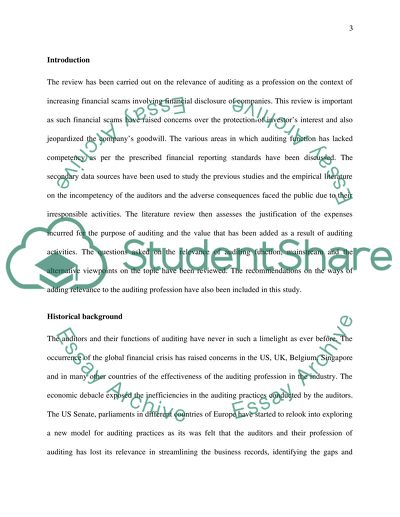Cite this document
(“Has the auditor lost its relevance as a profession Literature review”, n.d.)
Retrieved from https://studentshare.org/finance-accounting/1486209-has-the-auditor-lost-its-relevance-as-a-profession
Retrieved from https://studentshare.org/finance-accounting/1486209-has-the-auditor-lost-its-relevance-as-a-profession
(Has the Auditor Lost Its Relevance As a Profession Literature Review)
https://studentshare.org/finance-accounting/1486209-has-the-auditor-lost-its-relevance-as-a-profession.
https://studentshare.org/finance-accounting/1486209-has-the-auditor-lost-its-relevance-as-a-profession.
“Has the Auditor Lost Its Relevance As a Profession Literature Review”, n.d. https://studentshare.org/finance-accounting/1486209-has-the-auditor-lost-its-relevance-as-a-profession.


